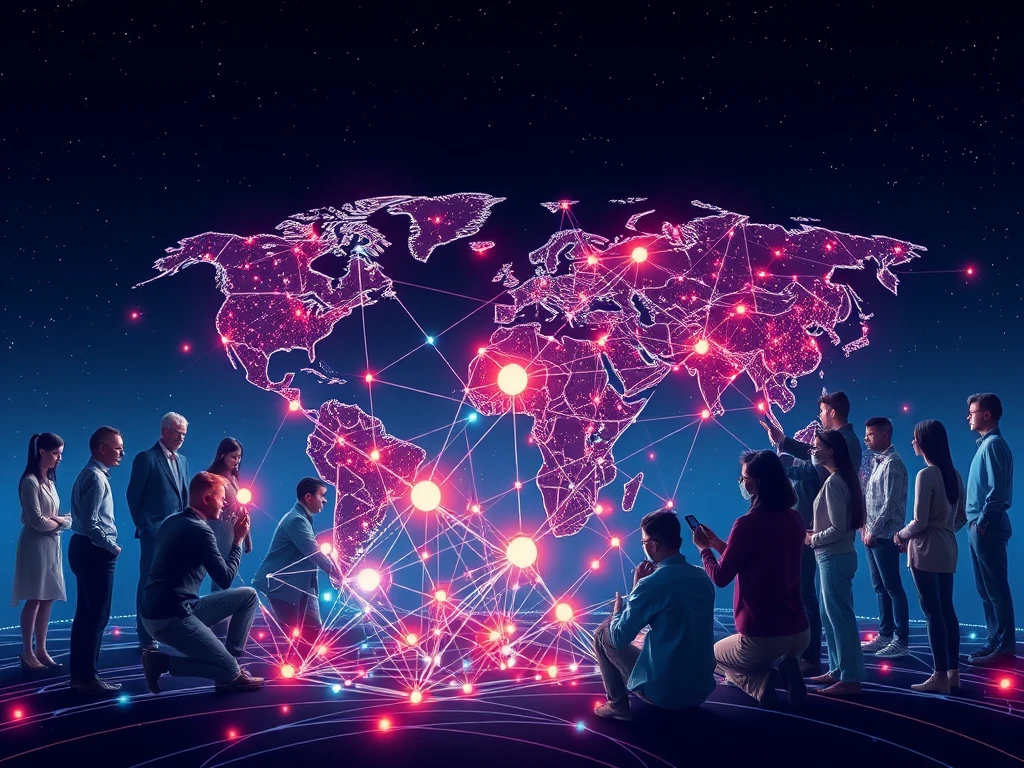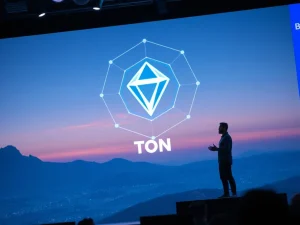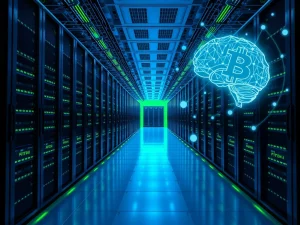Powerful Shift: Decentralized AI Sparks a New Renaissance for Crypto

For anyone navigating the crypto landscape, the concept of decentralization is fundamental. It’s about taking power from central authorities and distributing it. Now, imagine applying that same revolutionary principle to artificial intelligence. This is the promise of decentralized AI (DeAI), and it’s poised to reshape how we build, use, and govern intelligent systems, mirroring historical shifts that expanded access to knowledge and tools.
What is Decentralized AI (DeAI) and Why Does it Matter?
Just as Gutenberg’s printing press broke the elite’s monopoly on written information in the 1400s, DeAI aims to democratize intelligence. Today, most powerful AI platforms are controlled by a few large companies. Their systems are often closed-source, with hidden data and decision-making processes. This central control limits access, innovation, and can lead to biased or opaque outcomes.
Decentralized AI changes this by distributing the creation, governance, and distribution of AI systems. Instead of relying on a single entity, communities worldwide can build, customize, and govern their own AI tools. This approach reduces dependency on centralized infrastructure and corporate approval, embedding public benefit into the system’s design itself.
Challenging Centralized AI Development
The current model of AI relies heavily on centralized control. Model weights are proprietary, data pipelines are private, and decisions are made behind closed doors. This structure has allowed a small group to dictate the evolution and use of intelligence. This centralized approach carries risks:
- Limited access and potential bottlenecks.
- Narrow worldviews embedded in models, leading to bias.
- Opaque outcomes and lack of transparency.
- Decision-making tied to corporate interests, which can shift.
Decentralized AI directly challenges this by opening up these processes. It shifts the focus from proprietary control to community-driven development and transparent governance.
How is DeAI Transforming Communities and Markets?
The impact of decentralized AI is already being felt globally, especially in areas underserved by traditional tech. Because DeAI tools can run locally and be fine-tuned on specific data, they operate effectively even with limited bandwidth or infrastructure. Here are a few examples:
- Farmers in India using voice assistants trained in local dialects for crop planning.
- Teachers in Sierra Leone accessing AI chatbots via low-data messaging apps for lesson support.
- Midwives in rural Guatemala using AI apps on smartphones for fetal health monitoring offline.
These projects are built and adapted by the people who use them, bringing intelligence to those historically excluded from global tech development. Building AI agents is becoming more accessible, with tutorials and low-code/no-code platforms emerging.
Businesses are also exploring DeAI, training smaller models on specific datasets or customizing open-weight models for internal use. Within Web3, decentralized AI applications are growing rapidly, potentially challenging established sectors like DeFi and gaming in terms of market share. DeAI is proving that intelligence can be less abstract and more applicable, situated, and local.
Addressing Concerns: Inconsistency and Misinformation
A common critique of DeAI mirrors historical concerns about decentralized information – the potential for inconsistency or the spread of misinformation. Critics worried about unverified texts after the printing press appeared. However, that shift ultimately led to scientific progress, increased literacy, and broader public discourse.
With DeAI, transparency is key. Open models can be inspected and audited. Community norms and decentralized governance structures can evolve to manage local implementations and ethical considerations openly, rather than being dictated by a single corporate entity. This ongoing discussion highlights an ideological split in the AI community, between those favoring tightly controlled, centralized development for safety and those advocating for intelligence to emerge from global collaboration and local adaptation.
The Renaissance Returns with Decentralized AI
The next phase of AI will be defined by who participates in its creation and governance. As intelligence moves into public hands through decentralized AI, it becomes more robust, adaptable, and representative of diverse needs. Developers are moving away from reliance on closed APIs, institutions are considering sovereign AI infrastructure, and community-built models are appearing where Big Tech tools have limited reach.
Intelligence is no longer just built *for* the world; it’s increasingly built *by* it. We are still early in this transition, and the future depends on the infrastructure and tools we build. Investing in decentralized infrastructure, funding local projects, and creating accessible tools for shaping intelligence are crucial steps. The first Renaissance expanded who could read; this one promises to expand who gets to think, compute, and build – everywhere.
Opinion by: Matt Wright, co-founder and chief executive officer of Gaia. This article is for general information purposes and is not intended to be and should not be taken as legal or investment advice. The views, thoughts, and opinions expressed here are the author’s alone and do not necessarily reflect or represent the views and opinions of Crypto News Insights.









